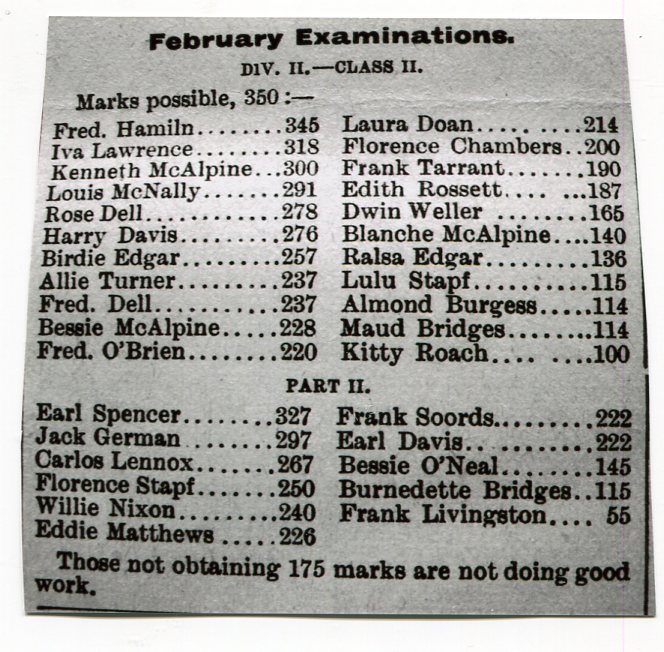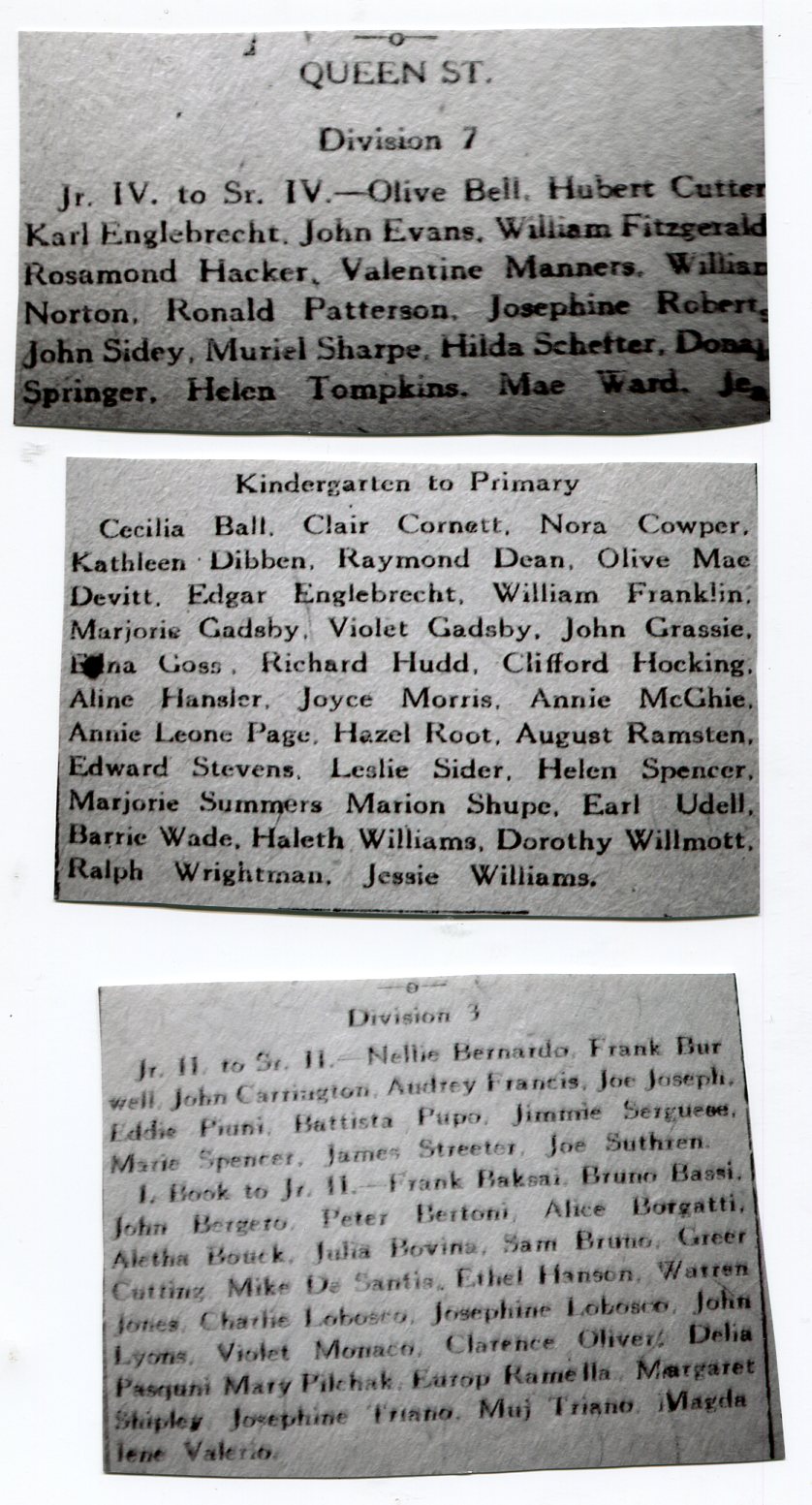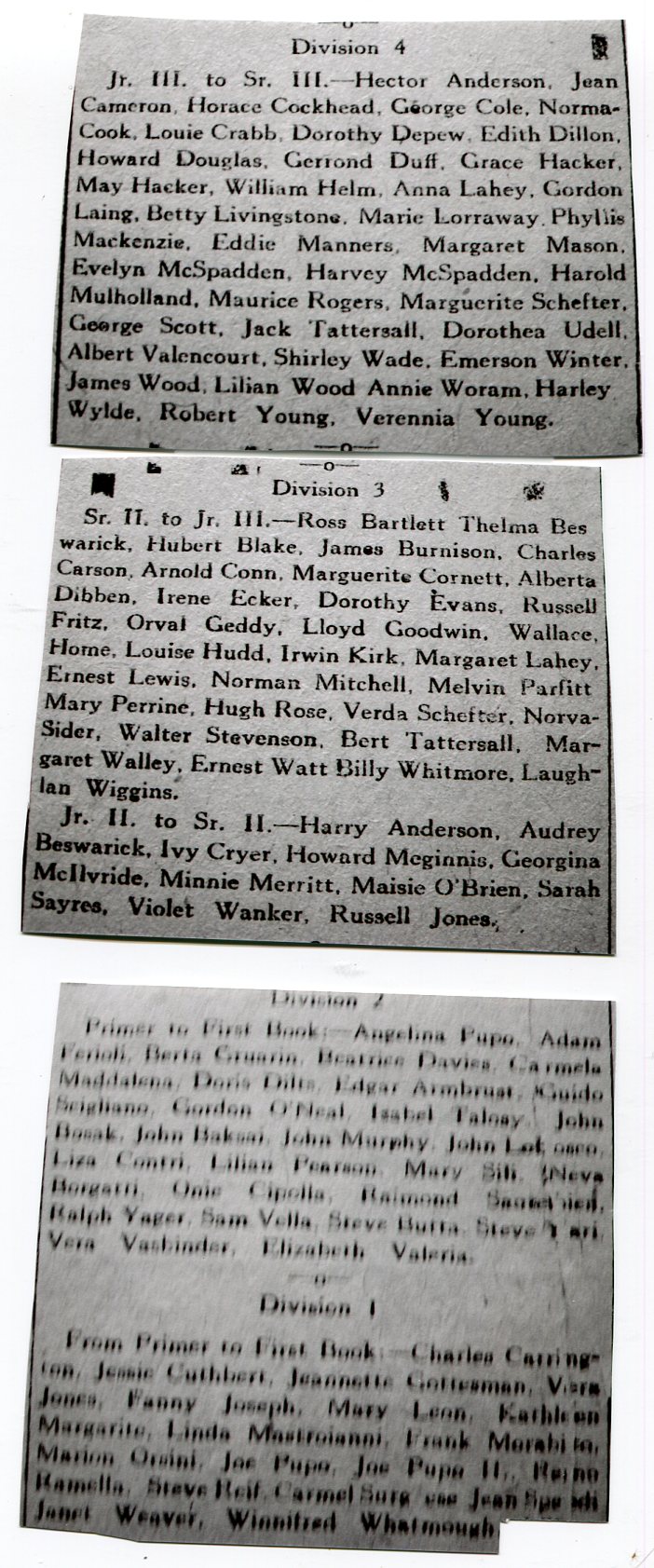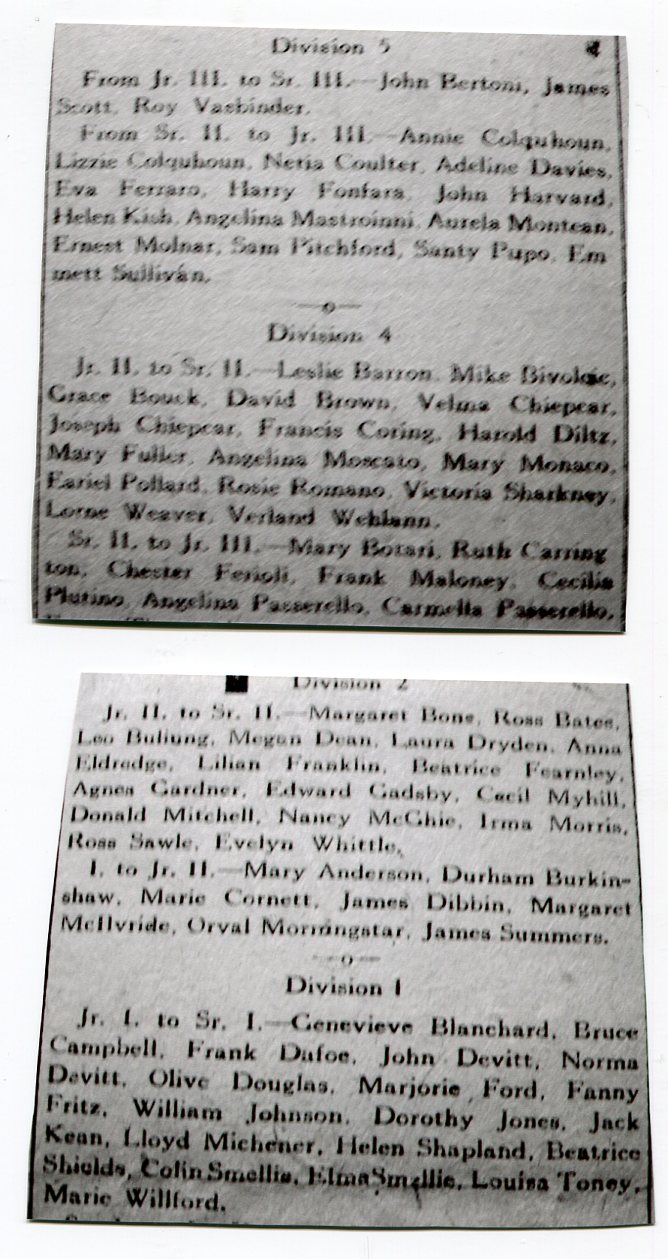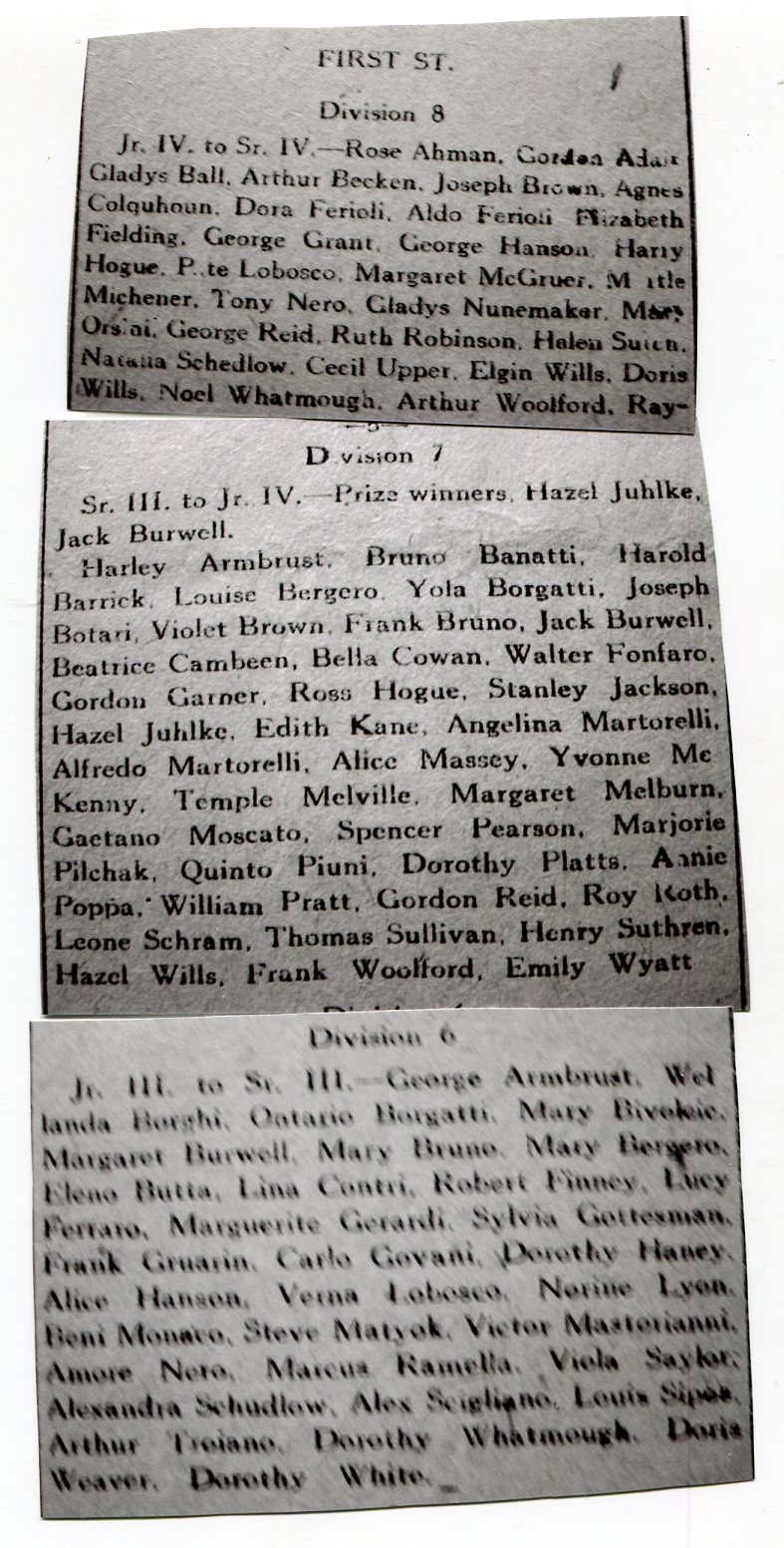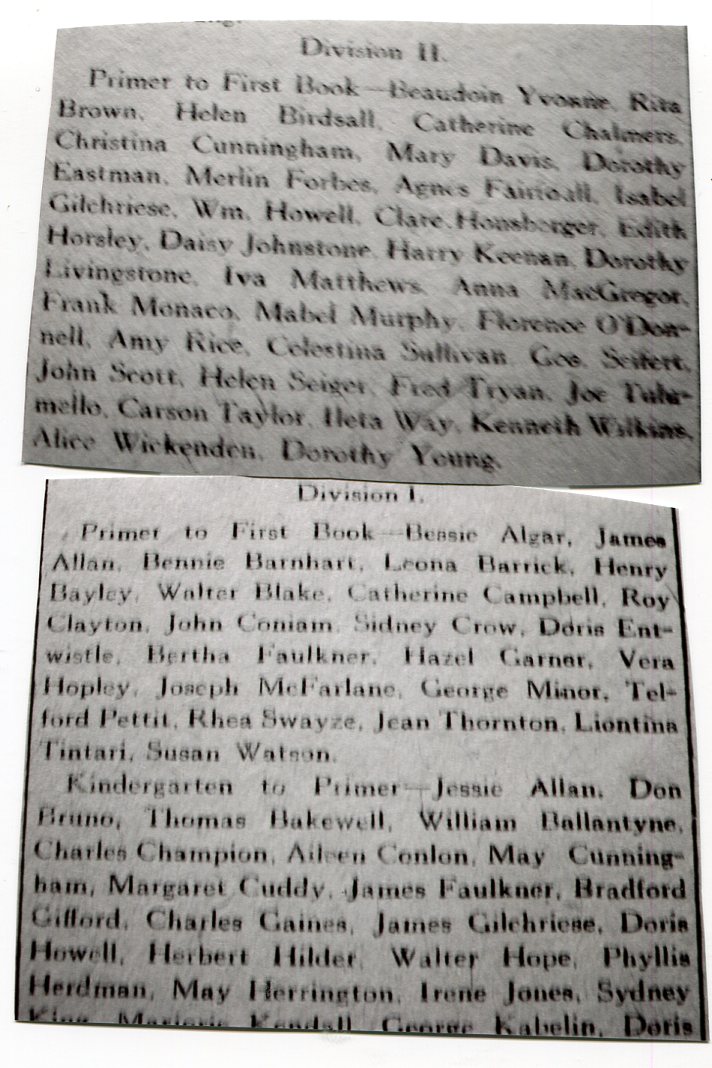CLIFTON HOUSE BURNED DOWN-LOSS, $100,000-FULLY INSURED.
(From our own Correspondent)
[Welland Tribune, 28 June 1898]
On Saturday a portion of the Clifton house kitchen chimney was blown down, which probably left it in a defective condition, for at 9.30 on Sunday morning, the roof at the north-east corner of the building was discovered to be on fire, and Town Clerk Robinson, who happened to be in his office, was called up by telephone. He ran out, rang the alarm and the hose and hook and ladder companies were soon on the way with the patrol wagon full of hose. When they reached the Clifton house they found that an attempt had been made to check the fire by a “bucket brigade,” but unavailingly.
The firemen were soon at work, augmented by the West End Hose Co., Bender hose, Niagara Falls village firemen and three companies from across the river. There was plenty of hose, fully 150 firemen to use them, but the water pressure from only a four-inch main was too weak for effective work. Still the firemen worked hard with hose attached to the main on the hill behind the Lafayette, the hydrant on Ferry st., and the 6-inch main on Bender avenue. The flames spread rapidly a brisk gale blowing towards the front of the building. A gang of bridge workers’ gave great assistance at removing furniture and carpets, which were piled up in the park opposite, and a number of Miller & Brundage’s employees saved all the stock from their curiosity store in front of the building. All the guests (about fifty) and employees escaped without injury.
For four hours the flames played havoc with the east and front of the building, the floors falling at intervals, finally yielding to the many streams of water and want of material to burn.
The northeast corner, stables, cottages and large hall at back all escaped, but the rest of the building was gutted. Portions of walls and chimneys had to be pulled down to prevent accidents.
The great bulk of the furniture was burned. This property was covered by $15,000 insurance, and the building was also amply insured.
Mighty crowds watched the conflagration, and somewhat impeded the firemen. The Ontario and park police did good service and prevented pilfering, though we may hear a little on this point later.
Later in the evening we viewed the scene of desolation, and the firemen were still busy pouring water on the smoking ruins of pulling shaky walls down. The steam fire engine was taken up to pump water from the park pond, but it was out of repair and useless. The firemen were often in great danger, and it is wonderful how they escaped injury. One of our boys, Jos. Winterton, received a bad gash on the wrist. There were other minor mishaps, but nothing serious. The standing walls, composed of stone rubble, fronted with pebble plaster, seem to have been very strong. The front was two storeys and the east side four storeys high.
The fire was a calamity in many ways. First, it was the principal hotel at the Falls and an old landmark; and secondly, fully 75 people are thrown out of work, not to speak of the loss to business generally witch will ensue.
The property belongs to the widow of the late Hon. J.T. Bush, and was leased for many years past by G.M. Colburn, who is absent in New York. The first Clifton House was built in 1835 by Harminus Crysler, one of our pioneers, and was added to from time to time, being run by J. Cummings, Chippawa; Bromley & Sayers, the late Mr. Zimmerman, who was killed in the *Desjardin canal bridge accident in 1855, afterwards being purchased by late Hon. J.T. Bush, a well-known American citizen, who died about ten years ago. Clifton played no small roll, and in its day, entertained some of the world’s greatest people. The dismal ruin looks most depressing, surrounded as is by beautiful nature. What would have been a very prosperous season had just commenced. There were some fifty guests in the house most of whom crossed to the American side. Architect John Nichols told us it would take fully $60, 000 or more to replace the building as it stood. No doubt it will be built on a grander scale for its site is simply unequalled. We heard an authority say that the C.P.R. might build a great hostelry there. There is no doubt but that it will be replaced at an early day. If not by Mrs. J.T. Bush by some person or company. The firemen think they might have saved a large portion of the building had the water main been larger and pressure greater. However, they did their best, and deserve great praise for their pluck and perseverance. We would venture to suggest to the mayor and council that the firemen be sworn in as constables, which would give them some power to protect themselves from crowds, also that the water mains down Clifton Hill be enlarged. When the fire was at its height it presented a grand spectacle. Some difficulty also was experienced in bringing water across the M.C.R. track at the top of Clifton Hill, space having to be dug out under the rails to pass the hose through and prevent stoppage to trains.
The front of the Clifton house was somewhat Grecian in style, but the east side was as homely as a building could be, with nothing to relieve it but a plain verandah at each storey. This is the most serious fire the town has ever known, but perhaps a greater and grander building may soon spring up from the ashes of the famed Clifton house.
BACK IN THE FIFTIES
HAPPENING IN WELLAND COUNTY FORTY YEARS AGO
INTERESTING EXTRACTS
Mrs. A.E. Rooth of Port Colborne has favored us with copies of the Welland reporter, published in the village of Drummondville (now the Village of Niagara Falls), away back in the fifties. Our selections on Feb. 15th for a similar back number leave little more to be gleaned of interest to the present generation, but we cannot refrain from noting a few of the important events found in the Reporter’s columns.
DESJARDINS CANAL CATASTROPHE
The issue of March 19, 1857, gives a thrilling eight-column account of the dreadful railway accident which occurred at the Desjardins canal bridge on the Great Western railway, on the 12th of the same month. About sixty-four lives were lost in this fearful catastrophe, among the death list appearing the names of Samuel Zimmerman and Mr. and Mrs. John Bradfield of Niagara Falls, and John Morley of Thorold. Mr. Zimmerman was buried with Masonic honors, over two thousand people attending. The body was deposited in a vault built on his own grounds immediately below the house. Thos. C. Street and Dr. Macklem of Chippawa were injured in the accident. The Reporter appeared in full mourning; a day was set aside by the authorities as a holiday as a mark of respect to the memory of Samuel Zimmerman.
Welland Tribune
8 March 1895
[Welland Tribune, 29 April 1898]
To the Welland Tribune:
Your correspondent this week paid a visit to “Maple Grove” the extensive fruit farm of William Platts & Sons. The firm is composed of Wm. Platts, sr., Earnest, A.P. and William , jr. Their farm is the land of the late Samuel Rice and is situated in the picturesque village of Pelham Corners, and is adjacent to the celebrated Fonthill nurseries. We found Mr. Platts busily engaged in planting 9 acres of strawberries. They have 11 acres of last year’s planting, making in all 20 acres of strawberries. They are testing several new varieties, such as the Beeder Wood, Bon Ton, Bubach. But the Williams seems to take the lead as to hardiness, good growth and fruiting. They have 15 acres of fine, red raspberries and from present appearance will turn out well. Last year the insect did considerable damage to the foliage, but the plants have entirely recovered from the effects of their ravages. The 4 acres of blackberries look well and will no doubt yield heavily. They have 10 acres of fine orchard on the Bridgman farm in Thorold township, composed mostly of Baldwin, greenings and spies, and it is well trimmed and in good shape for a crop this year. There is also a fine pear and plum orchard on the Bridgman farm and a nice lot of grape vines.
The Messrs. Platts are great potato growers, and they usually plant from 25 to 30 acres. Last season the weather did a great deal of damage to their crop, but Mr. Platts is thinking perhaps this will be a more favorable year, and will plant the usual amount. Their chief market for potatoes is Thorold and Merritton, and they take large loads to these markets three times every week from the time the early ones are fit until all are sold right from the field, thus saving the additional cost of putting them in pits or the cellar. Their loads often average from 70 to 100 bushels. That is late in the fall. Earlier in the summer their loads will run 20 to 40 bushels to the load. They supply all the bakeries and nearly all the large dealers the whole summer. This spring the firm is trying a new experiment in potato growing, viz: Plowing three furrows and dropping a whole potato about two feet apart in the furrow, and then plowing three more furrows, dropping again, and so on until a field is finished, and put on the disc harrow and work up the ground well on top, and just about the time the potatoes begin to show through the ground, they go on with the weeder, purchased from R. Moore & Son. This weeder is an implement similar to a sulky horse rake, and does splendid work. Last year the weeder saved a lot of labor in cultivating, hoeing, &c.
In stock they have 10 horses, 50 sheep, several cows and 30 heads of hogs. Last fall the firm built a large hog house (not as expensive as the Humber one) and purchased several brood sows and they lately added an imported O.I.C. hog from the celebrated herd of John Stirtzinger. They intend to turn the hogs in a large clover field as soon as it is fit, and thus raise their pork at a nominal cost, as it does not pay to produce pork from grain alone. The O.I.C. breed of hogs seem to be taking the lead as a good selling pig at six month’s growth.
The old-fashioned way of cutting feed and chopping grain by horse-power was too slow for Mr. Platts, so they purchased a Chicago aermotor windmill from Mr. Johnson of Ridgeway, and it does first class work, chopping all their own gain besides doing considerable custom work for the neighbors.
Mr. Platts, sr., takes a deep interest in religious work, and is pastor of the society of Adventists, and he preaches every Sunday in Dalton’s Hall, Fonthill, to large congregations.
“UNCLE ADAM” MISENER AND HIS HUNDREDTH BIRTHDAY
Gathering of His Descendants and Friends on Monday Last at Troy.
[Welland Tribune, 4 March 1898]
Troy, Ont., Feb. 25-the celebration of the one hundredth anniversary of the birthday of Adam Misener, a photogravure of whom appeared in the Grove of last Saturday, took place Monday afternoon and evening. The afternoon incident was a dinner in the town hall, followed by a public reception in the Methodist church in the evening, which was continued subsequently till a late hour at the old homestead. There were about 300 relatives and friends present. “Uncle Adam” as he is best known in the district, was taken by surprise. Among other things he stated that he had not realized till his birthday occasion that he had so many near relatives and friends, but was always satisfied that he had not an enemy. At the dinner “the centenarian” took the head of the table. On his right and left were seated the relatives and friends. Nine of his ten children are living, five of whom were present, as follows:-Conrad Misener of Troy; Henry Misener of Detroit, Mich.; Catharine Buckberrough (widow), Tillsonburg; Mrs. Amelia Smith, Goderich, and Eliza Vansickle of Harrisburg. After dinner and some social congratulations the assemblage adjourned to the church for the reception. Mr. Chas. Cummings of Galt presided. Short addresses were made by Rev. Mr. Showers of Sheffield; Rev. Thos. Athoe, Lynden; J.L. Addison, M.D., St. George; Editor Havernon, St. George; Wellington Mulholland, Geo. Hunt, John Betsner of Troy and others. An unusual event was the march past of the 104 relatives present. Five generations were represented. The total now living, present and absent, are as follows:-Adam Misener, the centenarian; his nine children; 54 grandchildren, 160 great-grandchildren, 14 great-great grandchildren; total 238.
An interesting musical programme was carried out, which added to the enjoyment of the occasion. Mr. Misener is a man very active for his age, so much so that he refused to be driven in a rig to the dinner in the hall, preferring to walk. In the course of a chat he stated that his first call out in arms was in the volunteer militia, under Capt. John Warren, on June 4, 1816, in the celebration of “the king’s birthday,” of George III, King of Great Britain and Ireland. He was also called out in Dundas during the rebellion of 1837, and he takes pride in stating that he served under the reign of four British sovereigns-King George III, George IV, William IV and her majesty Queen Victoria. Mr. Misener was of course born in the eighteenth century, February 20, 1798, and has now lived nearly through the nineteenth, and expects if his usual health continues, to celebrate another birthday in the twentieth century. (21 September 1901}. He remembers well the Battle of Lundy’ Lane. His father, Nicholas, and family at that time lived only a few miles distant from the Niagara river, in Crowland township. They could hear the engagement, especially the roar of the 32-pounders. After the battle he with his sisters ventured on the battle ground, saw the blood stains, the shattered trees, fence-rails, etc., the result of cannon and rifle balls. He remembers counting 42 bullet holes.
On the spur of the moment, as a birthday present, a purse of $86 was made up and handed the old gentleman in commemoration of the day. He received also many congratulatory telegrams, one being from his nephew, Henry Sharon, in California. Hamilton was represented at the gathering by W. Babcock of the Bell Piano Co. and J.H. Mattice of The Globe. “Uncle Adam” is greatly interested in the elections, ands states that he will be on hand next Tuesday and vote as usual for the North Westworth Liberal candidate.
“Uncle Adam” despite his century of years, shaves himself regularly, and in his happiest moments will sing some of the old songs of his boyhood. Just before parting in the evening a friend offered him the courtesy of a cigar. The old gentleman declined, and remarked that he never had any use for tobacco, and that he had never used it except to kill vermin on the farm stock. It is safe to say that this event will never be forgotten by those who were fortunate enough to be present.

 Subscribe..
Subscribe..

